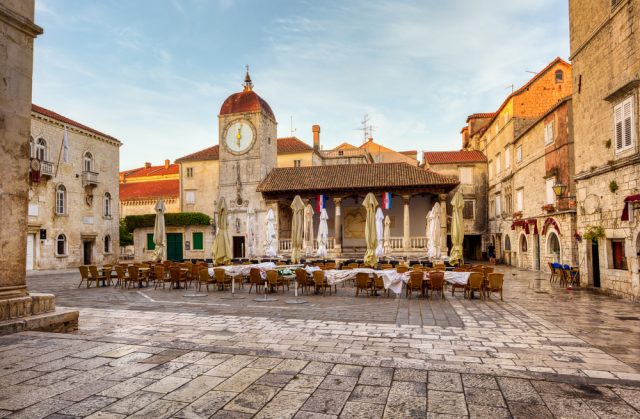
The series of ECR Party meetings continues in March. The ECR Party conference “Accelerating the Conservative agenda for prosperity and freedom” will take place during the European Culture Weekend in Split from the 31st of March to the 2nd of April.
It is well known that with the entry into the Schengen area on the 1st of January 2023, Croatia has also adopted the euro currency. This economic challenge for the small European country and how it will affect the population will be debated at the event later this month by representatives of the European banking system, financial experts, civil society representatives and leading ECR Party politicians.
The conference will start on Friday, March 31st and one of the first topics to be discussed will look at the effect of Croatia’s transition to the eurozone. Experts will present opportunities and challenges regarding the effects of the currency changeover.
The first panel of the European Culture Weekend will be: Croatia and the Euro the first effects of the currency change. This first panel will be moderated by Marko Milanovic Litre (MP Croatia), who together with his two guests Barbara Kolm, Vice Chairwoman, Austrian Central Bank and Dr. Neven Vidaković, Finance Professor, Zagreb University, will analyse what the changeover to the European single currency means for the Croatian people.
Ratko Martinovic will moderate the second panel on Friday. Dealing with the “Woke” ideology is a topical topic of debate around the world. In order to better understand how we can deal with this woke ideology, speakers Goran Lojkić (Professor, philosopher, Zagreb Institute of Philosophy, Croatia), Adela Mirza, President, Alternativa Dreapta, Romania and Ladislav Ilcic (MEP, Croatia) have been invited to express their views.
For members of the delegations in Split, Saturday promises to be a day full of interesting topics for European politics. The agenda of the ECR Party event will include four panel debates.
The first panel will focus on: Classical and Liberal Conservatism a way towards humane prosperity will be moderated by Antonio Giordano (ECR Party Secretary General, MP, Italy). It will feature Gary Kavanagh, (President of the Edmund Burke Foundation), Barbara Kolm (Vice Chairwoman, Austrian Central Bank), Hannes Gissurarson (Professor, Author, Iceland) and Goran Lojkić (Professor, philosopher, Zagreb Institute of Philosophy).
European Union and national competences: Defining the conservative line will be the topic of discussion in the second panel on Saturday. Speakers Rob Roos (MEP, Netherlands) and Ylenja Lucaselli (MP, Italy) will present to the audience what are the lines that define the conservative concept for a prosperous, responsible government, made in the interest of the citizen.
The third panel of the conference will discuss the functioning of the institutions of the European Union and the evolution of the balance of powers in the state. Angel Dzhambazki MEP (Bulgaria) together with Ruža Tomašić, former MEP, (Croatia) will explain how the EU institutions are interconnected and how they are linked to decision-makers in the Member States.
The last topic of the day to be debated will be: Brussels, Behind the scene / Working the politics. A very interesting topic and one that will be of interest to the young European conservatives who will take part in this event. What goes on behind the scenes of European politics, how certain laws come to be debated and voted on and who are the decision makers, what is the circuit of a law that comes to be voted on in the EP will be just some of the questions that those present will surely find an answer to from the conference moderators.
Split is known as a city at the crossroads of European empires. On this way the organisers will offer the members of the delegations present the opportunity to visit this part of Europe full of history. Among the renowned cultural sights to be visited is Diocletian’s Palace. It is well known that Diocletian initiated an original constitutional reform and established the tetrarchy as the system of government of the Roman Empire, increasing the number of rulers to 4.



 Subscribe
Subscribe